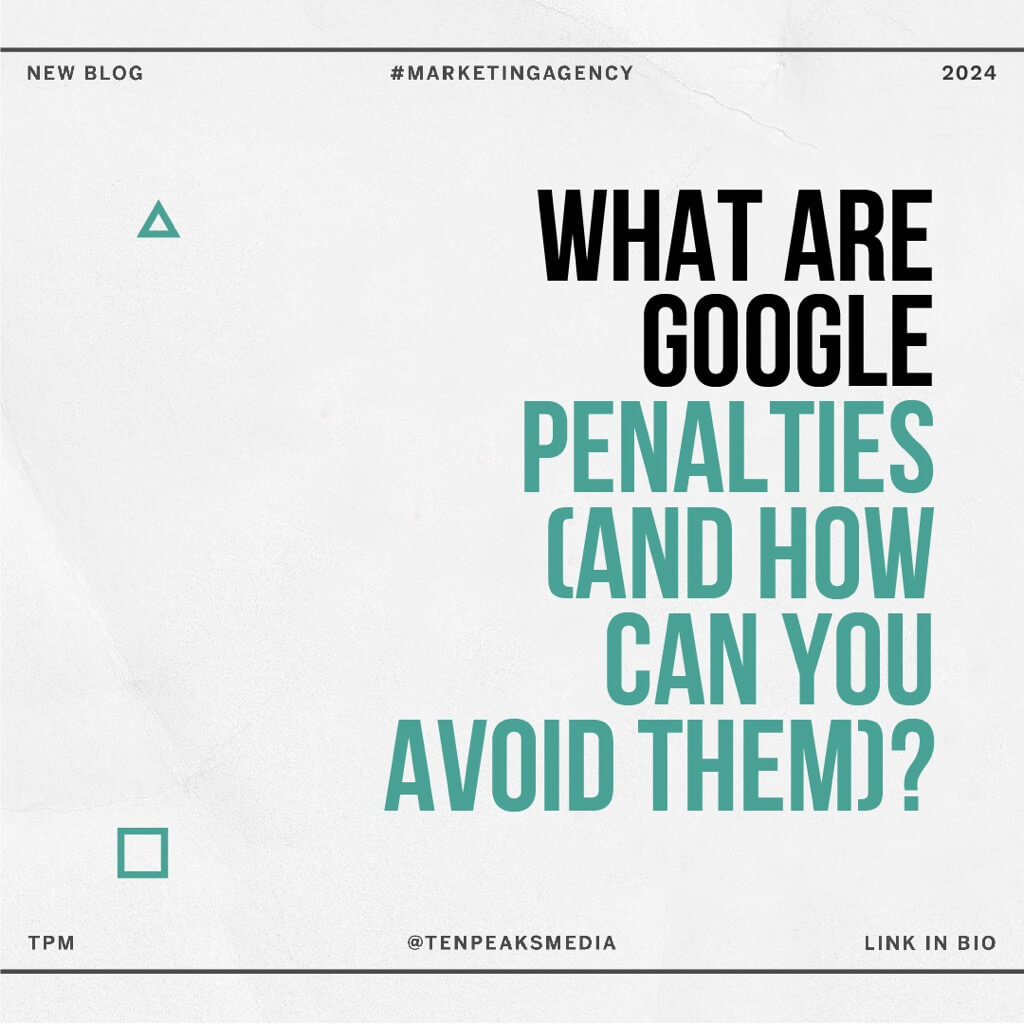At Ten Peaks Media, we are seeing that most of our clients receive about 60% of their searches now on mobile devices and 40% on search. Every business wants to increase visibility across the internet. It is the most used and efficient way to reach people – from your local community to across the world. Do you ever wonder how digital marketing fits into the equation, and where you should focus your efforts?
The first thing you need to do is ask yourself these questions.
Do I need to throw a broad net and reach a large variety of people?
Or, do I really just need to reach a smaller targeting group for my business?
In reality, while all companies need a good organic SEO strategy for search, few companies need a broad net approach. If your goal is best served by reaching a local targeted group, you must know your customers and define your group. You should know your target groups:
- Age Range
- Gender
- Interest
- Income level
- Education level
- Geographic location
Knowing these answers will help define your digital marketing strategy, and the blend between organic SEO and local search. Each has its place, each has common practices, but each has very different goals.
Organic SEO
This is what most people are familiar with and think about when you mention search engine optimization. It focuses on keyword-rich content and on-page optimization so that the big search engines like Google, Bing, and Yahoo can find you. It is different than Pay-Per-Click in that it is organic and provides lasting results for your business. The goal is the wide net approach, trying to get your results served up to as many users as possible.
Local Search
While local search, or local SEO, also relies on keywords, it links your business to a specific geographic location. This is normally a city or town, but could also be an entire county, metropolitan area, or state.
What makes Local Search important to me?
If you have a retail or service location, you already show up in local search. If someone is searching for a specific product or service, the search engines will take the user’s location into account when serving up results. Even if the user does not specify their location, search engine algorithms know their location and narrow the search based on that location. That is why knowing how you show up on local search is so important.
Google displays the local 3-Pack of Google Maps before organic results across all devices. The Maps Pack appears on first-page search results, making it the most frequently displayed search result feature available. The first, second, and third results in the Google 3-Pack receive 24.48%, 13.81%, and 9.5% of clicks respectively, for a combined total of 47.79% of clicks, according to Advanced Web Ranking. Additionally, from July 2018 – July 2019, Google has maintained 92.18% of all search traffic. The 3-Pack is also designed to appear as the first page in search results for someone doing a local search on a smartphone.
If you have a physical location, organic SEO gets customers to your website and familiar with your brand, local search SEO is designed to get them in the door through conversion strategies that include:
- Calling your business
- Scheduling an appointment
- Submitting a contact form
- Requesting driving directions
- Signing up for a class
Here are the top influences that affect your local ranking:
- Content Activity – How often do you provide relevant content via photos and posts?
- Views – A measurement of your company’s actual reach from photos in impressions and conversions. Is anyone looking at your photos?
- Profile Completion – It always surprises us as to how much information is not complete on a Google My Business page.
- Review Engagement – Your popularity with your audience measured by both quality and quantity of reviews.
- Review Response – What is your responsiveness and engagement back to your customers?
What should I do?
Your goal should be to show up in the 3-Pack for local results for search terms important to the success of your business. Implement a strategy that includes:
- Optimize your Google My Business page. Make sure all information is complete and that you are in the correct classifications.
- Ensure that your local citations match your Google My Business page. Having inconsistency in your name, address, and phone number (NAP) can really hurt your chances to make the coveted 3-Pack.
- Know your customer base and know the keywords they would use to find your products or services.
- Geo tag every photo you post with latitude and longitude of your physical location.
- Meta tag your images to include proper title, description, and keywords.
- Create quality content that your customers will appreciate and share.
- Find influencers important to your customer base, link to them, engage in their posts which can introduce you to their base.
- Include a strategy for search SEO that compliments your local search efforts.
Remember, Google Maps only shows the top 3 results with all other results hidden unless you click on the map to see more.
So What Now?
If your business goals align more with an e-commerce business that is not dependent on getting customers through your doors, concentrate on organic SEO to drive traffic to your website. If you have a brick and mortar location that depends on getting customers into your location, emphasis should be on local search and Maps.
Every company we work with, while sharing similar goals, requires a very unique strategy dependent on industry, number of locations, customer base, and a variety of other factors. Every business should be using both strategies. There are multiple benefits to being strong in both SEO search results and local search; however, concentration should be given to the one that puts customers into your pipeline. We have some clients that need to boost traffic through the door, but also have an e-commerce site, so both are equally important.
It is crucial that you know how to measure your results and be nimble and ready to pivot to what works and stop spending time and money on what does not. Implementing these strategies is more important than ever to the success of any business. Just realize your strategies and best practices will fluctuate over time.
If you would like to receive a free SEO and Local Search Audit, complete the attached form. There is no obligation.



